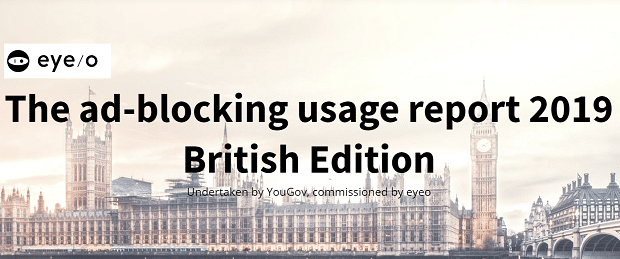
New research from eyeo, makers of Adblock Plus, found that while the major majority of 18-24 year-olds in Britain recognise the importance of advertising to a free internet.
Over half of 18-24-year olds in Great Britain believe online advertising will remain invasive in the future requiring them to still use their ad-blockers.
User preferences of 18 to 24-year-olds in Great Britain towards advertising, circumvention technologies also revealed for the first time.
Defying all preconceived notions that next-gen online users care little about the state of the digital economy, new research has revealed an overwhelming majority (90 percent) of 18-to-24-year-olds in Great Britain do understand the importance of advertising to sustaining the future of the internet.
The study, commissioned by eyeo, makers of Adblock Plus, Flattr and Trusted News, and undertaken by YouGov, puts the spotlight on attitudes and behaviours of 18 to 24-year-olds amongst British online users.
Key findings noted:
- Looking into the future only about a third (31 percent) of 18-24-year-old British online users expect advertisers to develop better quality forms of advertising.
- Under a quarter of participants (23 percent) believe to view better quality forms of content, users will be required to pay.
- The majority of participants (53 percent) however, believe online advertising will remain invasive requiring them to still use their ad- or content-blockers.
The research also explored attitudes amongst 18-24-year-old British ad-blocking users towards the use of so-called circumvention technologies. Some publishers have been or are experimenting with new technological workarounds, which allow previously blocked ads to be re-injected back onto user screens by disabling a user’s ad-blocker. These technologies are referred to in the industry as circumvention.
18-24-year-olds represent the biggest ad-blocking user demographic amongst the sample (66 percent have some form of an ad-blocker installed on their devices). The findings suggest that removing their control over the adverts they wish to see could have long-term implications for the publishing community. The findings revealed 91 percent would be ‘annoyed’ if a website disabled their ad-blocker without their permission. 70 percent also stated they would be unlikely to return to a website which disabled their ad-blocker without their permission.
Commenting on the findings Ben Williams, Director of Advocacy for eyeo said: “I can’t stress the importance of understanding and respecting the preferences of this generation for the future health of the digital ecosystem. With online advertising continuing to grow, our research becomes increasingly important in showing advertisers and publishers how next-gen users want to manage their online experience.
“This is a generation in-tune with invasive advertising and are wary about the types of ads they expect to see in the future. But equally, this is also a generation provided with the means to better control their online experience with tools like content-filtering, ad-tracking and ad-blocking technologies.”
Williams continued, “Consider the demographic of an ad-blocking user – young, educated, tech-savvy and employed with a higher-than-average salary. They are likely to make purchases online and even be influenced to do so by ads they’ve viewed online. Moreover, they spend more money on the web than non-ad-blocking users. While circumvention might appear a quick-fix for a publisher enabling their ads to be reinstated, the reality is this could generate distrust which seeps into future generations.”
Williams concludes, “The focus really needs to be on creating a balanced ecosystem between advertisers, publishers and online users. The next-generation recognises the importance of advertising to the future of the internet, so it’s imperative their voices are heard. Next-gen online users are prepared to enter into this improved value exchange – that is why we’re seeing ad-filtering replacing total ad-blocking. They want to remain in control of what content they see.”
To access the report, please click the link here.
